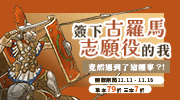The Right to Higher Education: A Political Theory
商品資訊
ISBN13:9780197612910
出版社:Oxford Univ Pr
作者:Christopher Martin
出版日:2021/12/27
裝訂:精裝
定價
:NT$ 5820 元若需訂購本書,請電洽客服 02-25006600[分機130、131]。
商品簡介
相關商品
商品簡介
Many assume that a person's right to education terminates with high school, and that higher education is a luxury addition. The conversation about education changes in palpable ways once we focus on higher education rather than the education we ordinarily think that citizens are due when they
are children and teenagers. We see more talk about competition for university places, standardized testing, and elite admissions. We parse out the differences between the benefits of education for the individual and the burdens of public financial support for such an education. The move from
educational provision for children to educational provision for adults marks a troubling transformation in this public conversation: from one about how it can improve the lives of all individuals, to one preoccupied with fairness, competition, merit, personal responsibility, and the sharing of
benefits and burdens. Problems of status, stratification, and selectivity capture as much, if not more, of our attention than the question of what higher education institutions should aim to achieve. But why should it be so different, when it is no less essential? Obtaining a higher education degree
can change the course of a person's life, providing them with vast opportunities that they could not access otherwise--in fact for many it is a prerequisite for fulfilling their personal and professional goals, or even being able to just make a living. Yet it is almost always framed as privilege,
not a right--and a privilege many spend years or even decades paying for after their studies have ended. Our higher education systems are built on the presumption that this is all as it should be: that pursuing higher education is a choice some people make, but not something to which all of us are
entitled. Christopher Martin turns this view on its head by arguing that higher education is in fact an unconditional, absolute right of all citizens in a free and open society. As he argues, a closer look at the value of education in a free and open society reveals that many of the challenges we see in
higher education today can be attributed to the failure to recognize higher education as an individual right. Using concepts and ideas from liberal political philosophy, Martin shows that access to educational goods play a key role in helping citizens realize their self-determined goals. Higher
education should be understood as a basic social institution responsible for ensuring that all citizens can access these goods. The necessary corrective, Martin argues, is simple: we need to stop allocating higher education to some, and allocate it to all who choose to pursue it. A readiness and willingness to learn should be the only qualification. Higher education should offer opportunities that benefit citizens with
different interests and goals in life. Its foundational moral purpose should be to help citizens of all backgrounds to live better, freer lives.
are children and teenagers. We see more talk about competition for university places, standardized testing, and elite admissions. We parse out the differences between the benefits of education for the individual and the burdens of public financial support for such an education. The move from
educational provision for children to educational provision for adults marks a troubling transformation in this public conversation: from one about how it can improve the lives of all individuals, to one preoccupied with fairness, competition, merit, personal responsibility, and the sharing of
benefits and burdens. Problems of status, stratification, and selectivity capture as much, if not more, of our attention than the question of what higher education institutions should aim to achieve. But why should it be so different, when it is no less essential? Obtaining a higher education degree
can change the course of a person's life, providing them with vast opportunities that they could not access otherwise--in fact for many it is a prerequisite for fulfilling their personal and professional goals, or even being able to just make a living. Yet it is almost always framed as privilege,
not a right--and a privilege many spend years or even decades paying for after their studies have ended. Our higher education systems are built on the presumption that this is all as it should be: that pursuing higher education is a choice some people make, but not something to which all of us are
entitled. Christopher Martin turns this view on its head by arguing that higher education is in fact an unconditional, absolute right of all citizens in a free and open society. As he argues, a closer look at the value of education in a free and open society reveals that many of the challenges we see in
higher education today can be attributed to the failure to recognize higher education as an individual right. Using concepts and ideas from liberal political philosophy, Martin shows that access to educational goods play a key role in helping citizens realize their self-determined goals. Higher
education should be understood as a basic social institution responsible for ensuring that all citizens can access these goods. The necessary corrective, Martin argues, is simple: we need to stop allocating higher education to some, and allocate it to all who choose to pursue it. A readiness and willingness to learn should be the only qualification. Higher education should offer opportunities that benefit citizens with
different interests and goals in life. Its foundational moral purpose should be to help citizens of all backgrounds to live better, freer lives.
主題書展
更多
主題書展
更多書展今日66折
您曾經瀏覽過的商品
購物須知
外文書商品之書封,為出版社提供之樣本。實際出貨商品,以出版社所提供之現有版本為主。部份書籍,因出版社供應狀況特殊,匯率將依實際狀況做調整。
無庫存之商品,在您完成訂單程序之後,將以空運的方式為你下單調貨。為了縮短等待的時間,建議您將外文書與其他商品分開下單,以獲得最快的取貨速度,平均調貨時間為1~2個月。
為了保護您的權益,「三民網路書店」提供會員七日商品鑑賞期(收到商品為起始日)。
若要辦理退貨,請在商品鑑賞期內寄回,且商品必須是全新狀態與完整包裝(商品、附件、發票、隨貨贈品等)否則恕不接受退貨。
























